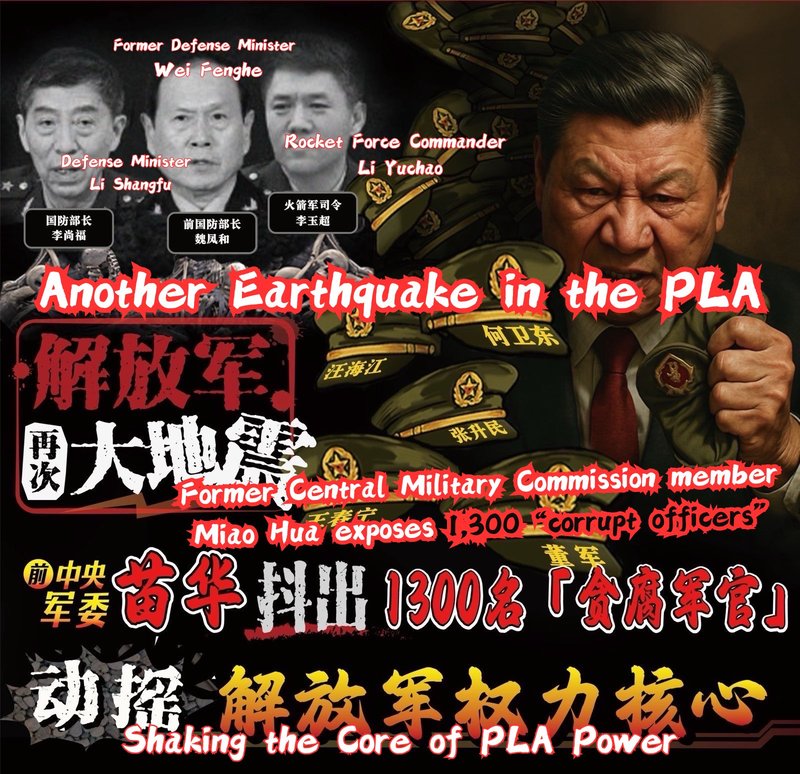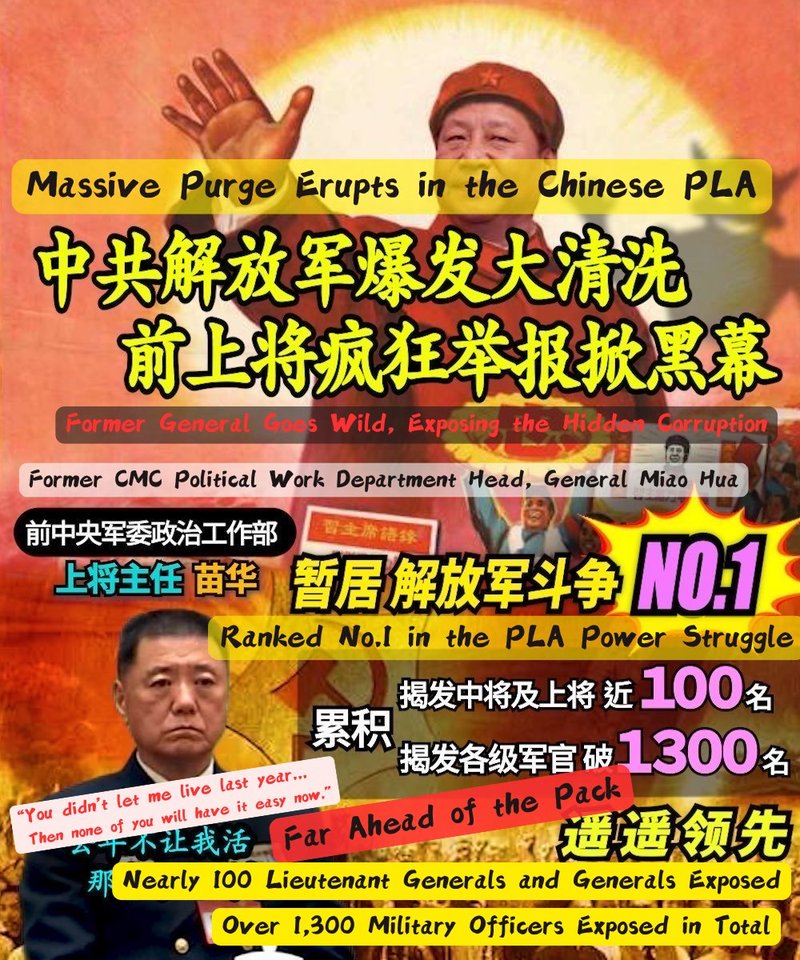
Two explosive images recently leaked from inside China have reignited conversations about what’s really happening at the top of the Chinese Communist Party (CCP)—specifically inside its military apparatus, the People's Liberation Army (PLA).
The photos depict President Xi Jinping surrounded by a growing pile of discarded general caps—symbolizing the downfall of hundreds of top military officials. The exposé was reportedly sparked by a dramatic whistleblower: former top general Miao Hua (苗华). According to anonymous Chinese sources, Miao has leaked the names of over 1,300 corrupt military officers, including nearly 100 generals and lieutenant generals.
His motivation? Personal revenge.
“You didn’t let me live last year,” he allegedly said, “then none of you will have peace either.”

This isn’t just another power shuffle. It’s a systemic unraveling of the military elite—one that's sending shockwaves through Beijing’s inner circle. But more importantly, it’s a sign of how desperate and unstable the CCP’s control over its armed forces has become.
The CCP has long cultivated an image of strength and order, using military parades, nationalist rhetoric, and AI-powered censorship to maintain the façade. But beneath the surface, factionalism, internal purges, and widespread corruption are eating the regime from the inside.
And as history has shown, when authoritarian regimes rot internally, they lash out externally.
The CCP knows it cannot afford to show weakness—not to its own people, not to Taiwan, and certainly not to the West. That’s why these internal military purges matter. Every general purged, every command disrupted, is another reason for Xi to manufacture an external enemy and escalate nationalist narratives.
An unstable China is not a safer China.
It’s a more dangerous one.
While the CCP may be turning on its own generals today, it has no hesitation turning on external adversaries tomorrow. In fact, it’s already happening. Here's how the PLA’s dysfunction directly impacts the United States:
The most dangerous threat isn't a confident China.
It's a collapsing one with nuclear weapons, an unaccountable military, and a political system built on fear, not legitimacy.
When loyalty to Xi becomes more important than competence, and when generals are more worried about survival than national strategy, rational military behavior can’t be assumed. This increases the risk of accidents, provocations, or manufactured crises that could draw the U.S. into direct conflict.
It also makes traditional diplomacy harder. Who exactly are U.S. counterparts talking to, if the Chinese leadership is constantly purging its top ranks? Who can speak with authority, or deliver on any agreement?
What makes this even more striking is that the information came from inside the system.
These images and leaks were shared anonymously by a Chinese netizen—a rare but growing trend as ordinary Chinese citizens risk their safety to expose the cracks in the regime’s foundation.
In an environment where the press is censored, the internet is monitored, and dissent is criminalized, these leaks are a form of resistance—and a red flag for the world.
The United States cannot afford to view China’s internal chaos as a domestic issue.
It is directly tied to America’s strategic security, economic health, and the global order.
The purge of 1,300 officers in a nuclear-armed authoritarian state is not just a headline—
it’s a warning.
And as the CCP struggles to hold on to control,
its next target will not be within—it will be abroad.